John Duncan waited until the last couple of outdoor farmers markets in October to put up a sign letting customers know he and his wife, Penny, were closing down York Hill Farm’s cheesemaking business.
It was just a modest sign; the Duncans are not ones to make a fuss or demand fanfare. Unless you saw the sign, you’d have no idea that this might be your last chance ever to purchase fresh cheese in the little white cups with the cute sketches of a pair of goats on top. Moreover, because the season for fresh chevre, their specialty since 1984, was winding down with the arrival of fall and breeding season, the absence of York Hill Farm cheeses on the marketplace wouldn’t have been noticed as winter was taking hold in Maine.
Sam Hayward, the chef/owner of Portland’s Fore Street, didn’t hear about their retirement until January, for instance. At Fore Street, the Duncans’ cheeses have been a critical part of two signature dishes for 20 years, including a tomato-goat cheese spin on tarte tatin. While happy for the Duncans, Hayward is verklempt for himself.
“I have no idea what I am going to do without York Hill cheese,” Hayward said.
That’s his practical side speaking, the part of him that put in orders for wheels of their hard cheese and 5-pound buckets of their soft, and relished whipping the Duncans’ soft cheese with fresh herbs and adding it to the top of that warm tomato tart like a mousse.
But more significant is his recognition of something more ephemeral, echoed by others in the Maine food community. Local cheesemaking, once a novelty, then a growing concern and now a booming business, has matured to the point where those who were once on the experimental frontier are ready for retirement.
“I call them the OGs,” said Eric Rector. Rector is a cheesemaker and past president of the Maine Cheese Guild. His affectionate term for the Duncans and others stands not for Original Gangsters, or even Old Guard, although they are that in local cheese circles, but “the old goat cheese people.”
The Duncans were leaders, and in an era where eating goat cheese was often considered penitential. Now they are leaders in exiting a marketplace while trying not to abandon their legacy. York Hill Farm’s recipes and equipment are for sale on Farmlink, along with mentorship from the couple on caring for livestock and making cheese.
Preserving their hard-fought place in the Maine food economy is important, said Stephanie Welcomer, a professor of management at the University of Maine whose work focuses on the intersection of sustainable businesses, communities and environment. She co-authored an in-depth study of the challenges and opportunities facing Maine’s artisan cheesemakers. One of the recommendations of that report, which was published in Maine Policy Review last year, was that an emphasis on succession planning is needed since a number of other Maine cheesemakers will be reaching retirement age in coming years.
“If they retire and their brand and know-how just kind of evaporates, it’s a loss not just to their customers and their community but to the state,” Welcomer said.
That potential for losing expertise is a problem that extends beyond cheesemaking to other parts of the Maine food economy, Welcomer said, but the Duncans’ legacy is a prime example of what Maine should be supporting. Groups like Land for Good are working to help with transfers of land, but what about value-added expertise?
Rector said there are “zero resources” available to help veterans such as the Duncans retire and pass on their knowledge and equipment to a successor. “We haven’t even thought about how we help our OGs retire,” he said.

A photo of John and Penny Duncan in the late 1980s, selling cheese at the Common Ground Country Fair. Staff photo by Brianna Soukup
BACK TO THE LAND
John and Penny Duncan met in their senior year of high school in Connecticut, while both were on spring break in Florida. They were married a year later. “And then we put ourselves through school,” John Duncan said. Penny went to nursing school, he studied respiratory therapy.
Even headed into the medical profession, both of them wanted land, at least enough for Penny to garden on. But land wasn’t cheap in southern Connecticut. They read “We Took to the Woods” by Louise Dickinson Rich and started looking for a place in Maine, where John had been born and lived until first grade. In 1978, they both landed jobs at Mayo Regional Hospital in Dover-Foxcroft and started shopping for an old farmhouse. It took until 1981 to find York Hill Farm in New Sharon.
Soon after, they got their first goats and started experimenting with making cheese, inspired by an article in Mother Earth News about a cheesemaking couple in Virginia. Penny’s passion led the way as they tried out recipes. As a child, she had immigrated from England to the United States with a father who had never lost interest in European cheeses. He doled them out in small, treasured, stinky doses to her and her siblings.
In 1984 the Duncans got licensed for milk production. They had 15 goats by 1986 and were sharing a booth at the Common Ground Country Fair. By 1987, they’d added 10 more goats to the herd and won the first of several first-place ribbons from the American Cheese Society. John quit his day job.
“We were at the first wave,” he said.
Goat cheese had taken off in California, but just barely. Laura Chenel, the first commercial goat cheese producer in the United States, started in 1979. Alice Waters was serving Chenel’s cheese at Chez Panisse in Berkeley by 1980. But West Coast trends were no guarantee of success at home in New Sharon. Barbara Brooks founded Seal Cove in Lamoine in 1976 and Pixie Day was milking goats in Tenants Harbor, but the Duncans had little company in their venture.
“They were incredibly brave,” Rector said. “In the 1980s, even in Boston, if you said ‘goat cheese,’ 90 percent of people thought, ‘Yuck.’ So imagine what it was like in a farmers market in Maine.”
The Duncans, he said, had to educate their customers. They had some strong allies, like Hayward. “They were the first of artisanal farmstead cheesemakers that I knew in Maine,” Hayward said. He’d stop by the farmers market on the mall in Brunswick to sample and then buy cheeses to serve at 22 Lincoln in Brunswick, the restaurant that established him on the national scene.
But he was an outlier. Duncan said they regularly sold to places like Treats in Wiscasset and Portland Wine and Cheese, but initially “it was all about getting the cheese out of state.”
Then New York Times food writer Marian Burros dropped by in the summer of 1987. She’d heard about that first-place ribbon from the American Cheese Society and she included them in a story about Yankee farmers thinking “small.” That helped boost their sales in markets that were ready for goat cheese.
By the early 1990s, the Duncans had a milking machine, a herd of about 50 goats and were making between 10,000 and 14,000 pounds of cheese a year, including a hard cheese called Capriano, aged between five months and a year.
“They were my first Maine cheesemakers that I sold,” said Kris Horton, whose K. Horton Specialty Foods recently closed shop in the Public Market in Portland after 18 years. She stocked 200 cheeses and said she considered York Hill “absolutely competitive if not superior” to many European varieties she kept in stock. “They are definitely cream of the crop.”
The Duncans also had a longstanding relationship selling to Whole Foods in the Boston area until about eight years ago, when the recession took a hit on the amount people were willing to spend on luxury cheeses. The Duncans pulled back and focused more on local markets.
“We sized down because we were looking to eventually size out,” John Duncan said. “And we wanted to enjoy the last few years.”
Although their son and daughter-in-law worked with them at York Hill for many years, when it came to succession, they were not interested.
“They both realized that this wasn’t their calling,” Duncan said. “It was our calling.”

York Hill Farm, the Duncans’ home and place of business for over three decades. Staff photo by Brianna Soukup
THE PRICE OF SUCCESS
On Oct. 28, the Duncans sold the last of their goats. But unlike some other retiring farmers, they weren’t interested in selling their land or their pre-1820 farmhouse. They could have put their equipment on Craig’s List or eBay, but they wanted to preserve the business they had built over so many years. They listed it on FarmLink, Maine Farmland Trust’s program to match potential farmers with farms, with a price tag of $100,000, including the equipment, the recipes and the mentorship.
“We’ve had some inquiries, but nobody who could afford it and build a new facility and get everything up and running,” Duncan said.
“I think it is a bargain,” Welcomer said. Maybe not for a novice coming into the business. “I think the average young cheesemaker sees that as Mount Everest in terms of cost. But that is a huge, rare and hard-to-substitute set of resources that they are passing on.”
Jill Dutton of The Cheese Iron has sold York Hill’s cheeses throughout the 12 years the Scarborough store has been open. She too is pulling for someone to train with the Duncans, and see their recipes put to good use by someone else.
But cheesemaking involves an alchemy of recipe, livestock and the diet those animals consume, and Dutton wonders if anyone can really replicate what York Hill did. “You can sell the recipe but the milk is really why it has that flavor,” she said. What if the grass up there in New Sharon was what gave York Hill cheese its distinct flavor, she wondered?
From Rector’s perspective, the mentorship the Duncans would offer is key. Goat cheese may seem simple, but it is not, he said. “It is so sort of simple that it is really complex. It is all about time and temperature.” Every step is critical, he said. “I would argue that it is pretty hard to consistently make good goat cheese.”
Welcomer agrees. The full title of her co-authored study was “Maine’s Artisan Cheesemakers: The Opportunities and Challenges of Being an Artist, Scientist, Agriculturalist, Alchemist, and Entrepreneur.” All those factors are needed to make great cheese, and selling a business like York Hill Farm is more than just an economic exchange. “They really want to pass on their competencies and brands to someone that shares their values,” Welcome said.
Having tasted and enjoyed York Hill cheeses like that Capriano, the hard cheese that Hayward likes to adorn summer arugula salads with at Fore Street, Welcomer knows how special it is.
“That would be hard to reproduce,” Welcomer said.
LIFE WITHOUT THE KIDS
This will be the first spring since the early ’80s when the Duncans have not gone into midwife mode for their goats. John Duncan jokes that together he and Penny probably delivered as many kids as the local OB-GYN, an average of 140 goats every spring, many producing multiple kids in a birth. “We have had as many as five at a time,” he said.
For more than 30 years he rose at dawn to give his goats fresh hay and spent two hours getting them milked and the rest of the day marketing, packing and shipping the cheeses his wife made with that milk. Is there a goat or two in the Duncans’ future? Possibly, John Duncan said, but not until they’ve had some time to travel, ski at Sugarloaf and enjoy their camp in Rangeley. They’ve already been to Wisconsin to visit their daughter and to Niagara Falls as tourists. Penny Duncan is in no rush to be milking again.
“I don’t have trouble letting go of the goats,” she said. The recipes and methods are what she worries about. “The make-procedures for those cheeses, I would really like to send along. But we’ve got it on FarmLink, and I think it will just be a matter of time and finding the right person.”
How will they make do, without their own cheese?
“We have probably 30 cups of our cheese in the freezer,” John Duncan said. “And some Capriano and some of our ripened roll, so we haven’t had to worry about it yet.”
For those without a secret stash of York Hill Farm cheese, it’s a little painful.
“It just feels like a passing to me, that they aren’t going to be around,” Hayward said. But at the same time, he can see a bright side.
“They have been successful enough, with a great product, that they can retire,” he added. “That is a hopeful sign for Maine’s farmers.”
Copy the Story Link
Send questions/comments to the editors.


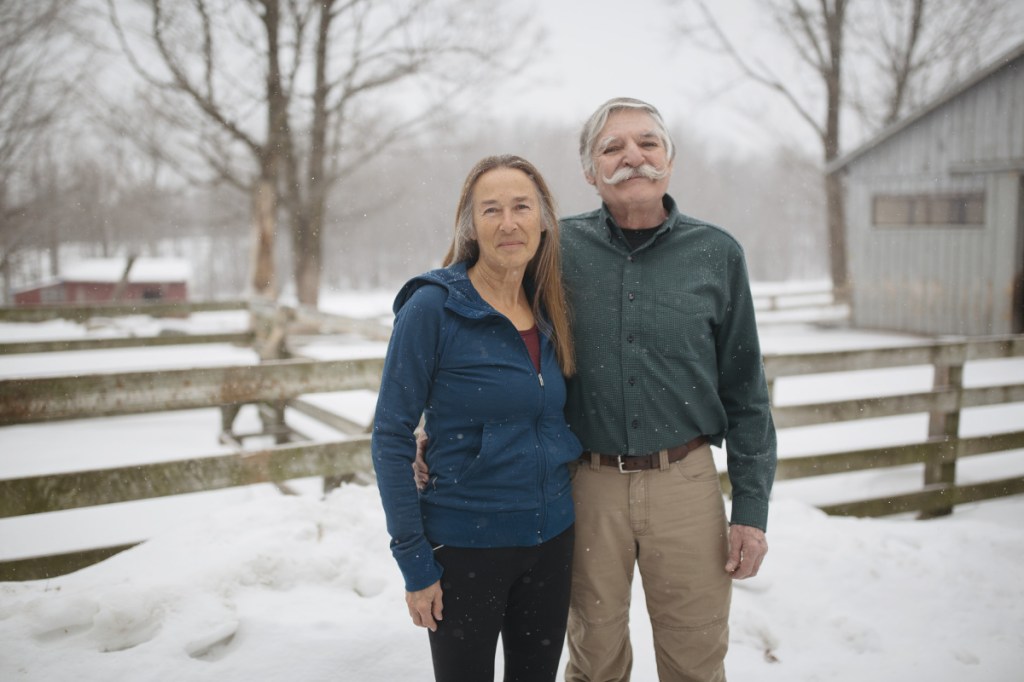
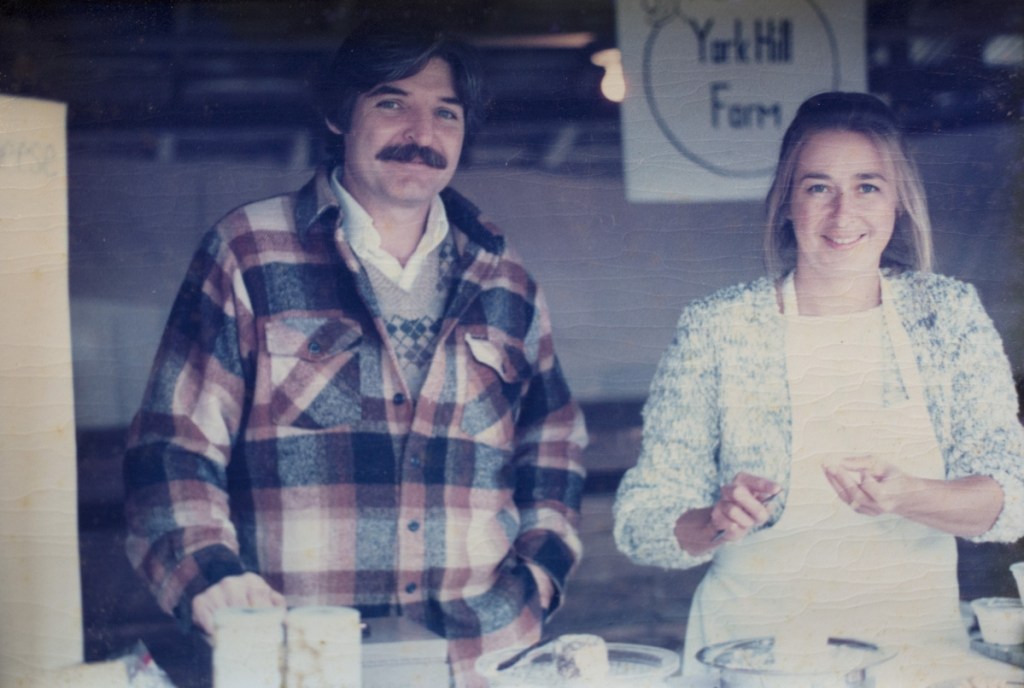
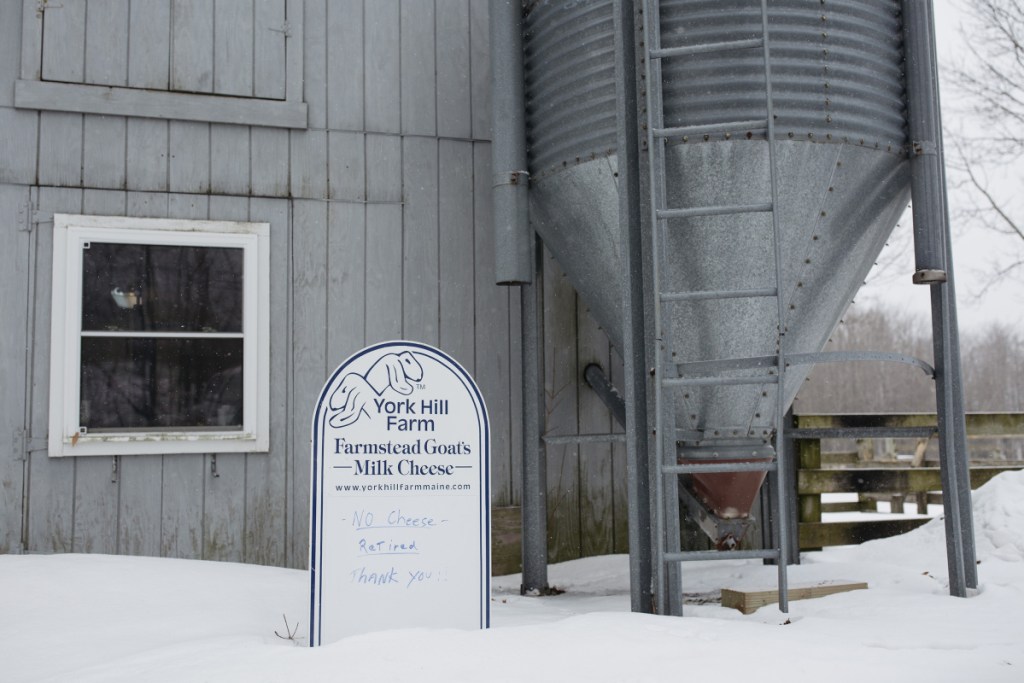
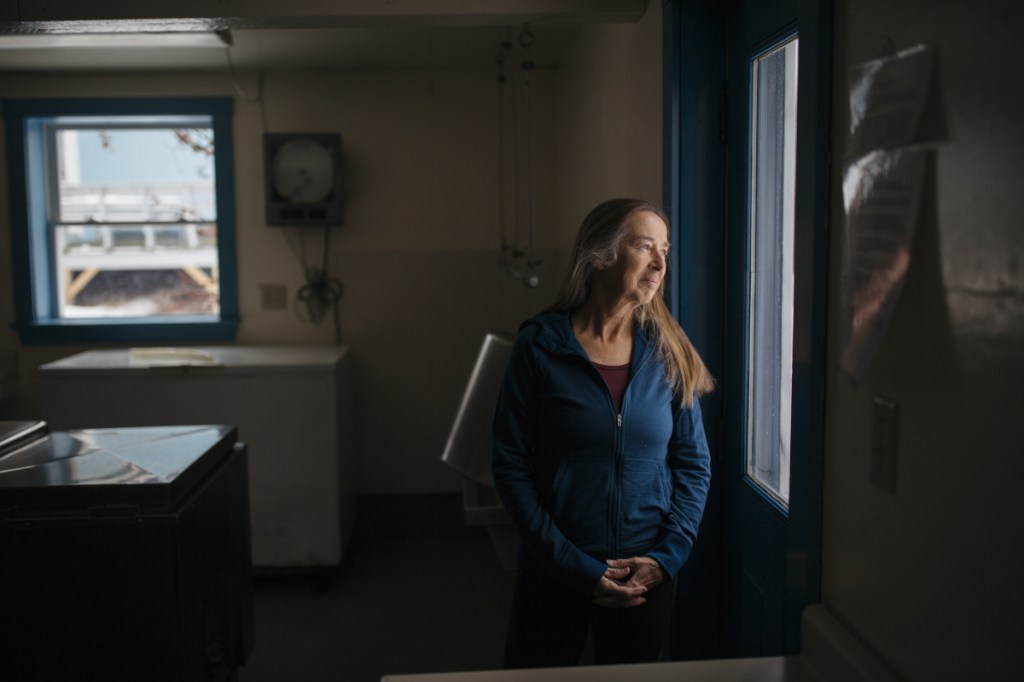
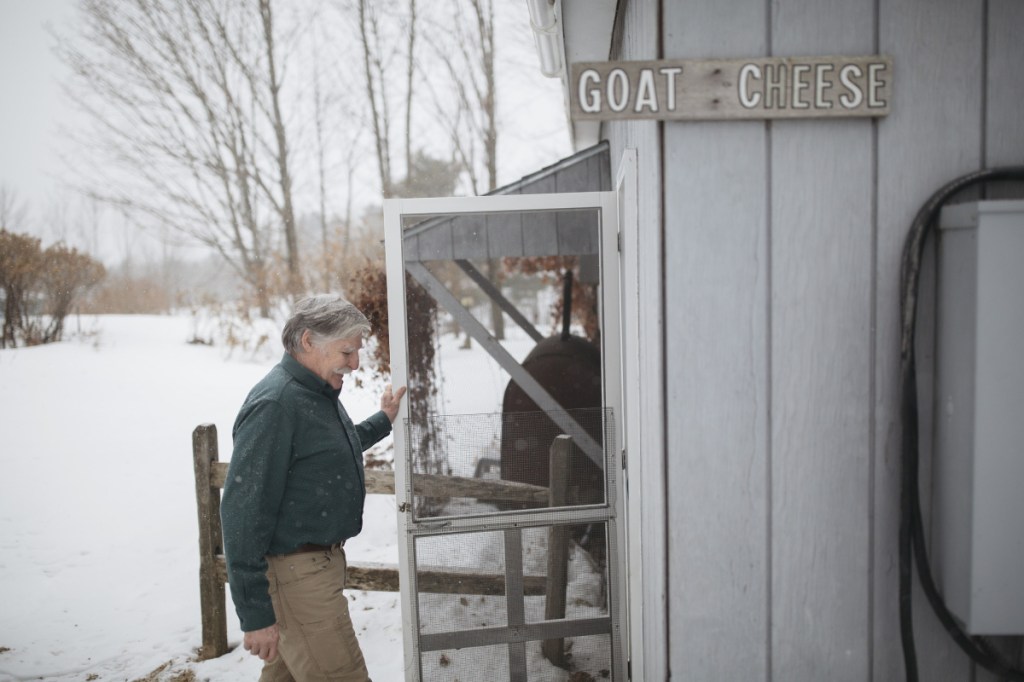
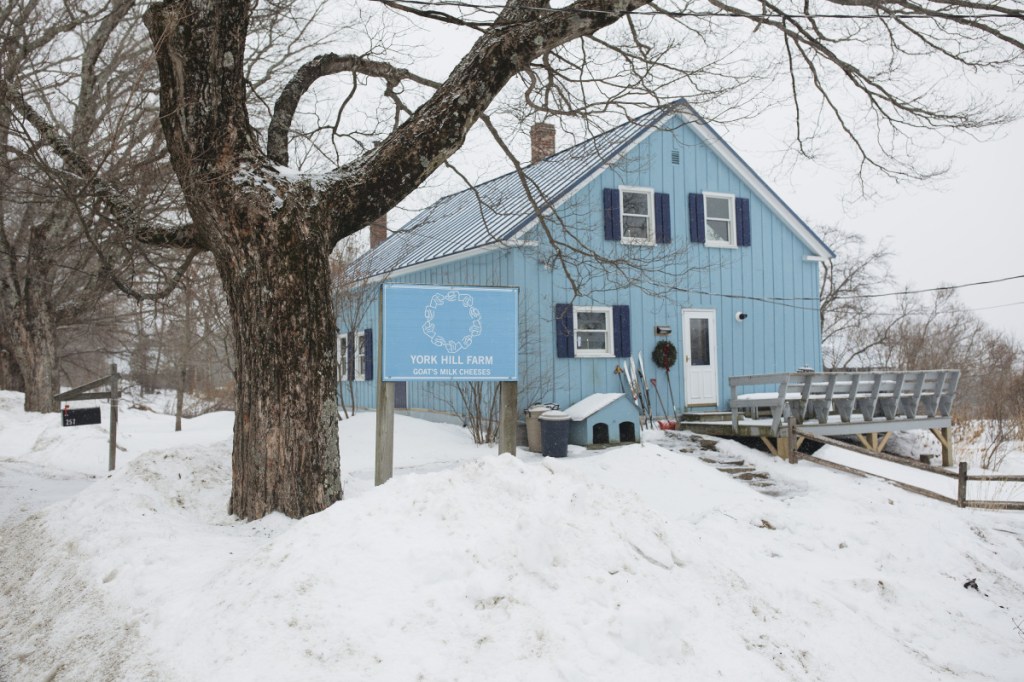
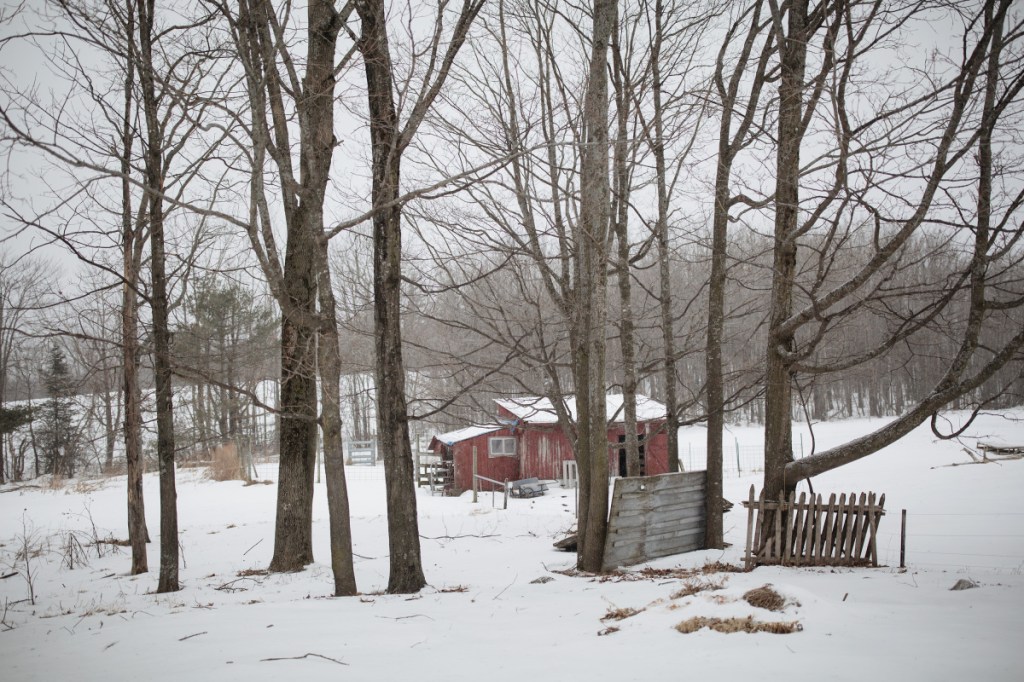
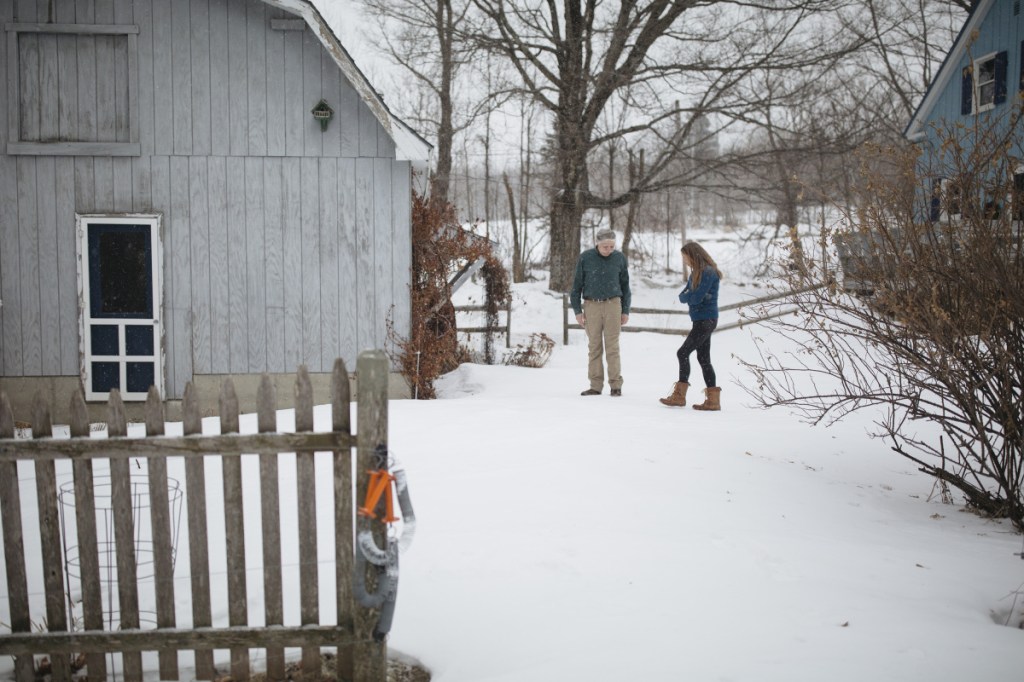

Success. Please wait for the page to reload. If the page does not reload within 5 seconds, please refresh the page.
Enter your email and password to access comments.
Hi, to comment on stories you must . This profile is in addition to your subscription and website login.
Already have a commenting profile? .
Invalid username/password.
Please check your email to confirm and complete your registration.
Only subscribers are eligible to post comments. Please subscribe or login first for digital access. Here’s why.
Use the form below to reset your password. When you've submitted your account email, we will send an email with a reset code.